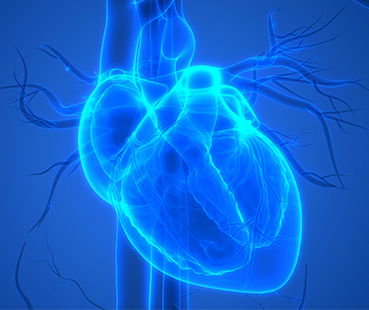NewYork-Presbyterian has more than 30 years of experience in left ventricular assist device (LVAD) implantation and monitoring. Our experts are internationally recognized as pioneers in the field, specializing in complex cases and often treating patients deemed too ill to receive an LVAD by other institutions. Explore our ongoing research below.
Heart Failure Research Institute

Left Ventricular Assist Device (LVAD)
Research Highlights
- Combined antithrombotic therapy is the standard treatment for patients supported with Left Ventricular Assist Device (LVAD) to prevent clotting complications. However, bleeding complications are also a significant concern in this population. In the multi-center ARIES study we evaluated the safety and efficacy of treating new, fully magnetically levitated LVAD patients with a reduced antithrombotic regimen. The study aimed to determine if aspirin could be safely avoided in LVADs. The main findings were:
- Avoidance of aspirin as part of an antithrombotic regimen resulted in decreased bleeding events without a significant increase in thrombotic events
- To further explore the role of antithrombotic therapy in LVAD patients, we plan to conduct another randomized controlled study, this time enrolling chronic LVAD patients. The goal of this research will be to investigate whether a reduced antithrombotic regimen is safe and effective in preventing bleeding events in chronic LVAD patients.
- The significance of this research lies in its potential to increase the LVAD population which can benefit from reduced bleeding events while effectively preventing thrombotic events
- Despite significant advances in therapies, heart failure (HF) remains a progressive disease that, once advanced, is associated with significant death and disability. Cardiac replacement therapies with left ventricular assist device (LVAD) and heart transplantation (HT) are the only treatment options for advanced HF, and while lifesaving, they can also be lifespan limiting due to the associated complications.
- Systemic inflammation is mechanistically important in HF pathophysiology and progression. However, directly targeting inflammation in HF has not been beneficial thus far. These failed attempts at therapeutics might be related to our limited understanding of the factors that cause inflammation in HF, and, therefore, to our inability to investigate these triggers in interventional studies. Observational studies have consistently demonstrated associations between alterations in the digestive (gut and oral) microbiome, inflammation and HF risk and progression. Additionally, recent data indicate that these microbial perturbations persist following LVAD and HT, along with residual inflammation and oxidative stress. Furthermore, there is rising recognition of the critical contribution of the microbiome to the metabolism of immunosuppressive drugs after HT.
- The Columbia Heart Failure Microbiome initiative was established in 2015 and comprises of a multidisciplinary team of experts in Epidemiology, Gastroenterology, Infectious Diseases and Heart Failure. Over the first several years we have established a robust database that includes >500 HF, LVAD and HT patients. We have collected >1000 biospecimens that included gut, oral and blood samples. The initiative resulted in multiple publications that were presented at the national and international levels and published in prestigious journals like Journal of Heart and Lung Transplantation, Circulation Heart Failure, European Journal of Heart Failure.
- Left ventricular assist devices (LVADs) have revolutionized the field of advanced heart failure treatment. In recent years, our group has been at the forefront of exploring the hemodynamic impacts of LVADs and optimizing their performance.
- In 2019, we demonstrated with HeartMate2 and HVAD patients that invasive RAMP studies could optimize hemodynamics and reduce hospitalizations and heart failure admissions.
- Currently, our team is pioneering a project with HeartMate3 LVAD patients, integrating both invasive and non-invasive hemodynamic data, including CardioMEMS implantation. This approach aims to provide personalized, precise medicine for each LVAD patient. Preliminary data have already shown significant improvements in quality of life and functional status due to this enhanced surveillance.
- We are also preparing to launch a new prospective study to address a critical gap in knowledge: whether and how LVAD patients should be paced after implantation. We plan to enroll HeartMate3 patients with pacemakers and thoroughly examine hemodynamics across different pacing modes. Our goal is to clarify this contentious and important topic.




